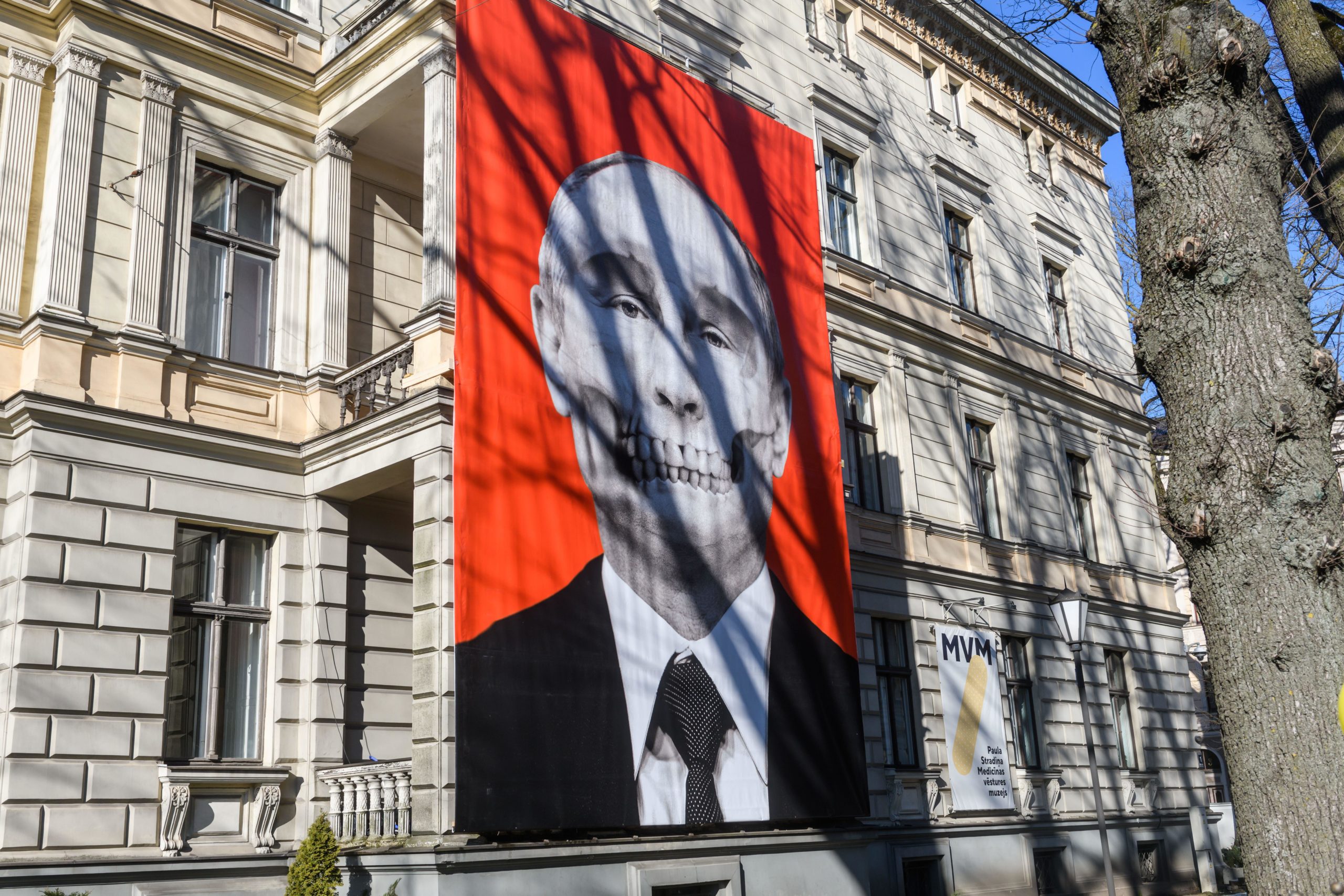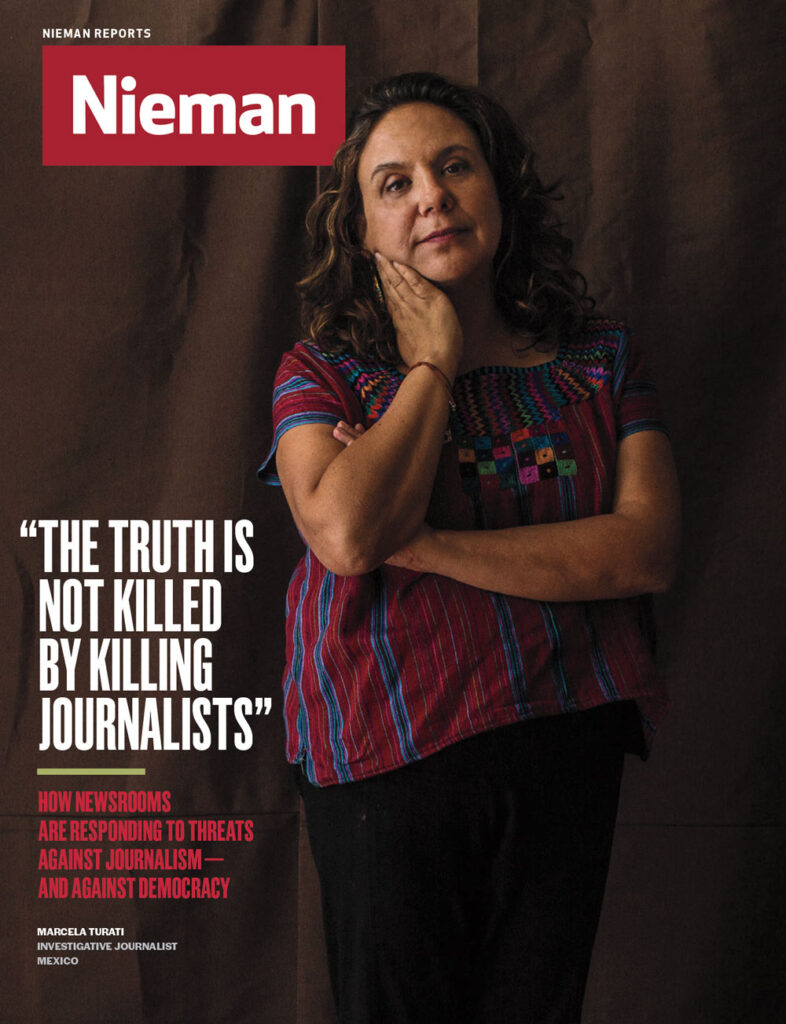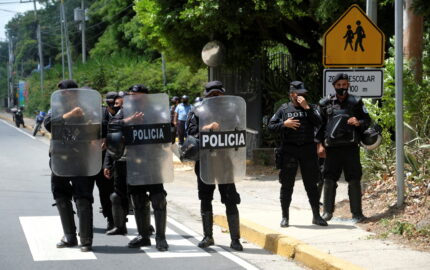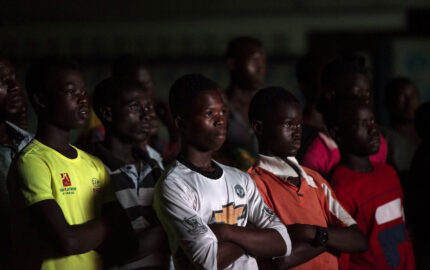When Reporters Without Borders released its latest World Press Freedom Index in May, the findings were grim: In more than 130 countries, the situation for journalists was classified as being “problematic” or worse, and the number of countries classified as “very bad” for press freedom hit a record high — 28 out of 180.
But there was one glimpse of hope: For the first time since the index was launched, two Baltic countries made it to the top 10. Lithuania ranked 9th and Estonia was 4th, right after Norway, Denmark, and Sweden. Latvia, the third of the “Baltic sisters,” was 22nd — still higher than the U.K., France, and the U.S.
For many Baltic journalists, who serve more than six million people in all three countries combined, the results came as a surprise. After two years of Covid-19, they were overworked and less secure in their jobs. As in many countries, the media advertising market hasn’t come back to its level before the financial crisis of 2008 and the rise of social media.
The press freedom report reminded Baltic journalists how far they’ve come since the days of the Cold War when Lithuania, Latvia, and Estonia were occupied by the Soviet Union, and the press was controlled by Communist Party officials. The biggest Soviet newspaper, Pravda (“Truth”), was cheap, and the jobs there could last a lifetime — but it didn’t allow criticism of the party line.
Since Feb. 24, when Russian troops started a full-scale invasion of Ukraine, many have feared that the progress the Baltic states have made could be upended. So Baltic journalists are covering the war in Ukraine as if it’s their own — because in many ways it is.
For Baltic journalists, the war in Ukraine is not just another story to cover with “the view from nowhere.” It’s something very personal that affects journalists both as citizens and professionals.
“In our case, the question is, will we be alive or not,” says Indrė Makaraitytė, head of Lithuania’s public broadcaster LRT’s investigative division, describing the mood in the newsroom. “It seems that no other topic matters. The war is not in our territory, but emotionally it is our war. Here in the Baltics, and in Poland as well, we see this war for the safety concern that it is. If Ukraine survives, we will survive.”
After the collapse of the Soviet Union, journalists in the newly re-established Baltic republics, which joined the European Union as well as NATO in 2004, had to create an independent press from scratch. Today in Lithuania, Latvia, and Estonia, the biggest players in the industry operate on a market basis, with transparent funding and freedom from politicians or oligarchs. All three countries established strong public broadcasters, funded by taxpayers, similar to the BBC in the U.K. or Deutsche Welle in Germany.
Just like their counterparts in the U.S., Baltic journalists face a lack of trust in media, the erosion of the regional press, and people’s unwillingness to pay for the news. But there is no risk of going to jail for your work, like in neighboring Belarus. Critical reporting on the government appears every day on print, digital, TV, and radio platforms.
Still, Baltic journalists have reason to worry. In December, during negotiations with the U.S., Russia announced a desire to revert the world’s security architecture to 1997 when the Baltic states were not part of the E.U. or NATO. In the worldview of Vladimir Putin, the Baltic states — all three of which share borders with Russia and have significant Russian-speaking populations like Ukraine — should have never been independent. Tensions flared in late June when Lithuania said it would enforce E.U. sanctions on goods being transported to Kaliningrad, a tiny piece of Russia that’s nestled between the Baltic country and Poland. Russian officials threatened serious repercussions for the entire Lithuanian population, setting the entire region even further on edge.
Baltic journalists are covering the war in Ukraine as if it’s their own — because in many ways it is
The memory of Soviet soldiers occupying the offices of LRT, on Jan. 13, 1991 — just months after the country declared independence — remains fresh for many journalists. Fourteen people died that night in Vilnius. That memory combined with Putin’s war has fueled concern about what could happen if Russia’s territorial ambitions expand.
Lithuania, the biggest of the Baltic states, has a population of 2.8 million. There are five major digital news websites, four competing TV stations, two news-focused radio stations, more than 100 online journalism initiatives ranging from podcasts to investigations, and at least ten print newspapers and magazines that still matter.
The situation is similar but on a smaller scale in Latvia and Estonia. Estonia, the wealthiest of three Baltic states, is leading in turning their digital readers into subscribers: In 2020, almost one out of ten people in a 1.3 million country was paying for online journalism, according to Estonian Association of Media Enterprises. Meanwhile, Latvian journalists are known for their investigative work and having a strong media studies program at Riga’s Stockholm School of Economics.
Competition in the Baltic media is generally fierce. But a new trend has emerged: solidarity. Almost all major news channels across all three countries have changed their logos to blue and yellow — the colors of the Ukrainian flag. After more than 100 days of the war, it is still the case. 15min.lt, one of the leading portals in Lithuania, went as far as putting “Slava Ukraini” (“Glory to Ukraine!”) in Ukrainian letters next to their logo.
Some influential websites also turned off their comment sections to stop Russian disinformation campaigns. For many years, especially before the rise of Facebook, comment sections were among the first spaces for people to express themselves online and connect with other readers. Though the quality of comment section discussions had begun deteriorating in the last few years, the conversation was completely hijacked once Russia invaded Ukraine.
“First we tried to turn off the comments only for the stories about Ukraine,” says Ingus Bērziņš, editor of Latvia’s DELFI, the most popular news website in the country. (Each Baltic nation has their own version of DELFI, and each of them is a leader in terms of traffic.) “Then we understood that these supposedly Kremlin trolls are working everywhere. You can publish a recipe on how to make pancakes, and you will find comments saying that Latvia is a failed state and Putin is a hero. So, we decided to close them entirely.”
Bērziņš also says that Latvian DELFI has been the target of daily bot attacks, but its firewall keeps the website going. “Last week there were at least seven attacks,” he said in an email in early June. All three versions of DELFI, just like the websites of Lithuanian, Latvian, and Estonian public broadcasters and more than 2,000 news websites worldwide, are blocked in Russia for their coverage on the war in Ukraine.
Postimees, the main competitor of DELFI in Estonia, has emerged as one of the leaders in covering the war in Ukraine among privately owned media companies. Its journalists have reported on Ukrainians hiding in bomb shelters in Luhansk, launched a live blog of the war, and started a newsletter focused on Ukraine. The newsroom also launched a Ukrainian-language edition on its website, alongside the Estonian, Russian, and English versions it was already running, to help inform the 41,000 Ukrainian refugees in Estonia, who now comprise more than three percent of the population. On Feb. 15, Postimees’ foreign news section received 224,000 clicks. On Feb. 25, the day after the invasion began, the number was 1.2 million.
Baltic reporters working in Ukraine have filed from the front lines, including a photo series from war-torn Chernihiv. And, like in many newsrooms, the coverage has involved everyone from foreign correspondents to sports reporters. But, unlike many other newsrooms, Baltic news organizations have taken an unabashed pro-Ukrainian stance.
There is no shortage of information about what Vladimir Putin and his Minister of Foreign Affairs Sergey Lavrov are saying. But Latvian, Lithuanian, and Estonian journalists don’t pretend they don’t have a stake in the story.
“If you wrote a column in Latvian media supporting Russia, that would be journalistic suicide,” says Inga Spriņģe, co-founder of the Baltic center for investigative journalism, Re:Baltica. She doesn’t think that’s unfair or biased: “It is not a both-sides issue. Russian soldiers are raping women in Ukraine. There is a war and Russia is an aggressor.”
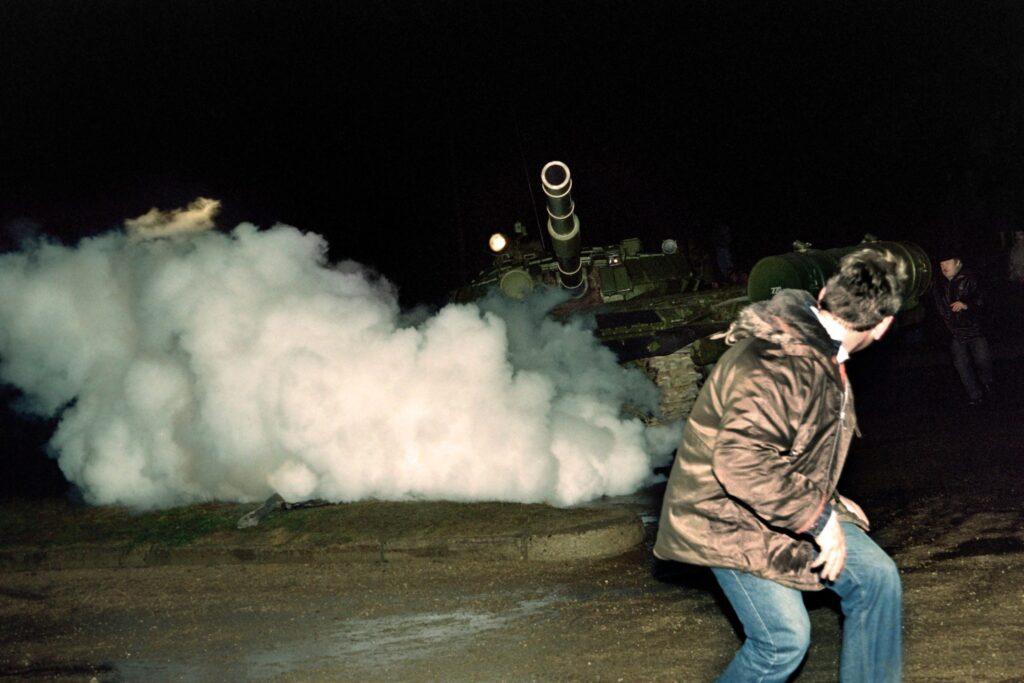
“We in the Baltics have already experienced it,” continues Spriņģe, who is Latvian. “We have lived under Russia’s occupation for five decades. Our family members were deported to Siberia. We know what could happen. And we are afraid that it will happen again.”
Instead, columnists are writing critical analyses of Germany’s and France’s foreign policy towards Russia or calling out their own politicians’ pro-Kremlin behavior.
One of the leading Latvian voices analyzing the war in Ukraine is IR, a weekly magazine led by editor Nellija Ločmele. One of IR’s March cover illustrations, blending Putin’s face with the illustration of a skull, was printed as a massive banner and hung at the Museum of Medicine in Riga, facing the Russian embassy. The embassy sent an official note to remove it, which the museum refused.
Tarmu Tammerk, the Tallinn-based Estonian Public Broadcasting Company’s ombudsman, says that while many news organizations across the Baltics provide Russia’s point of view, it is always put into context. “When the Russian Foreign Ministry spokesperson is saying that in Bucha, there was no Russian attack, it’s just a Ukrainian provocation, they are staging it with actors, and she goes on and on, we do not go on with this lie,” he says. “We quote her, but then we give facts. Bucha had been verified by the teams present there, with satellite images. … We don’t let lies be repeated over and over again. It is not morally justifiable.”
The news environment is more complex — and potentially more divisive — for those who speak both Baltic and Russian languages. “We have journalists from multi-language families,” says Monika Garbačiauskaitė-Budrienė, director general of LRT in Lithuania. “Some of their family members believe the Russian propaganda machine. Meanwhile, journalists follow the news from verified sources and see what is actually happening. It’s hard to cope with that psychologically.”
Many Russian journalists have resettled in the Baltic states — namely Latvia, which shares a 133-mile border with Russia and has the largest Russian-speaking population — almost 400,000 people — of the three countries. The latest example is Novaya Gazeta, an iconic Russian newspaper that has become a symbol of the free press in the region. It was the last independent media channel to suspend publishing operations in Russia. After a short break, it launched a separate online and print edition from Riga, under the name Novaya gazeta. Europe. Editor Kirill Martynov, who is Russian, told Latvian Radio that their goal is to provide honest reporting about the war: “It must be shown that such a war actually takes away the future from our children and makes us all miserable and poorer.”
Meduza, the news site that has become an important source for many Westerners seeking Russian-related news, has been operating from Riga since 2014 as a Russian journalists’ newsroom in exile. When the invasion started, Meduza was blocked in Russia for correctly calling the attack a “war.” And once sanctions on Russia’s banking system were imposed, the newsroom lost payments from its 33,000 monthly supporters in Russia. In response, the newsroom started a crowdfunding campaign, “Save Meduza,” aimed at Western audiences. In June, it had more than 12,000 backers. “We have around half of what we need on a regular basis every month,” says Ivan Kolpakov, editor-in-chief.
There is no shortage of information about what Vladimir Putin and his Minister of Foreign Affairs Sergey Lavrov are saying. But Latvian, Lithuanian, and Estonian journalists don’t pretend they don’t have a stake in the story
Even before the war, Meduza journalists were preparing for the day their website would be shut down in Russia. They launched a campaign explaining how to use a virtual private network to access the website and grew their Telegram social network audience to one million. The website is blocked in Russia, but audiences can still download the app and subscribe to an email newsletter. “At the beginning of the war, we had 300,000 downloads of the app. By now, we have more than one million downloads,” says Kolpakov. “And people use the app more often than the website. Each user returns around 25 times a month on average.” As a result, Meduza managed to keep the majority of its audience.
Just like other Russian media newsrooms in exile, Meduza evacuated all its staff from Russia. It is left with what Kolpakov calls “guerrilla reporters” — a network of freelance journalists who work anonymously and with great care to “bring a lot of reporting from the ground” because they can be criminally prosecuted.
Kolpakov, who is Russian, says that the newsroom’s main goal is to re-establish the connection between people in Ukraine and Russia. He is happy that the readership in Ukraine is growing: “The conversation between Ukrainians and Russians was interrupted in 2014 with the invasion of Crimea, but it was completely destroyed on the 24th of February. We have to be a bridge between two societies.”
In an effort to build this bridge, Meduza publishes human-focused stories of both Ukrainians and Russians opposing the war. For example, they ran a story about a Ukrainian painter, whose works were saved from a museum bombed by Russian forces and a story on the first Russian citizen to be charged for “discrediting” the army.
While the Baltic countries embraced independent Russian journalists, they denounced Russia’s state-controlled media which, in the words of Meduza’s English-language editor Kevin Rothrock, is “an extension of the Russian military, not ‘the news.’” As of June 9, Latvia’s National Council for Electronic Media (NEPLP) blocked more than 80 Russian TV channels. The ban was imposed after Latvia’s parliament passed a new law that allows restricting foreign programs that “threaten the country’s sovereignty” in late May.
For Ingus Bērziņš, editor-in-chief of Latvia’s DELFI, the war in Ukraine means rethinking the limits of press freedom to avoid false “bothsidesism.” “We are in a war of values,” he says. “I think we should side with democracy.”
In Lithuania, Latvia and Estonia, officials shut down Russian media, arguing that the channels threaten national security and promote ethnic-based hatred towards Ukrainians. In Latvia and Estonia, about a quarter of the population are Russian speakers, and attitudes towards the war among those populations are more mixed — presenting a challenge to journalists trying to cover this population in ways that are nuanced and representative. After the main Russian language TV channels and websites were blocked in Estonia, some of their viewers turned to public broadcaster ERR.
“Some of the people just reject what they see,” says Estonian Public Broadcasting’s Tammerk, commenting on letters and calls received by the public broadcaster. “They say, ‘Stop with Western propaganda. Why are you lying about Moscow?’ ‘You just wait until Putin gets here.’” According to Tammerk, there have also been “nasty and aggressive” verbal threats to Russian-speaking public media journalists.
Since Feb. 24, Baltic journalists have supported Ukrainian resistance in a number of ways. Olga Dragileva, a Latvian DELFI journalist, who grew up as a Russian speaker in Riga, initiated an open letter denouncing Russia’s war, which was signed by 114 influential Russian speakers in Latvia, from artists to athletes to epidemiologists. Among them were 26 journalists. The letter was followed by a demonstration of Russian voices against the war, during which she spoke.
“There is a feeling from part of the Latvian society that as a Russian speaker, I am less afraid of war, which is not true,” she says. “I am afraid of Russian soldiers just the same, even though we share the same language. I am ashamed that our mother tongue is used to give orders to kill and rape. I’ll have to live with it for the rest of my life.”
In Lithuania, the Lithuanian Journalists Car Club collected 33 SUVs and pickup trucks for the Ukrainian army. At least eight media organizations, partially supported by their readers on Patreon, left the platform after the company suspended fundraising for a Kyiv-based non-profit looking for donations to buy body armor and medical kits for the Ukrainian army. These media companies moved to local crowdfunding platform Contribee. One such organization was Laisvės TV, whose founder, Andrius Tapinas, raised €305,000 from more than 13,000 followers to help Ukraine. In May, Tapinas and Laisvės TV started the biggest crowdfunding campaign in country’s history: They raised more than 5 million euros to buy a Bayraktar drone for Ukraine’s army. The money was raised in less than four days. When asked by the BBC if he blurred the lines as a journalist, Tapinas said that he doesn’t think so. “Social activity [now] is more important. I don’t want to be ‘objective’ about Russian occupants killing and raping Ukrainians. … We need to combat [them] regardless our profession.”
When Lithuanian reporters for DELFI first went to Ukraine, they left helmets and vests for Ukrainians, recalls Rasa Lukaitytė-Vnarauskienė, editor-in-chief of Lithuanian DELFI. But they weren’t immediately able to buy more safety equipment for themselves because the country’s supply had all been sent to Ukraine.
Margus Parts, a foreign news reporter at Postimees, grew up in an independent Estonia but says that the fear of their Eastern neighbor — Estonia shares a 183-mile border with Russia — has been passed to his generation. The wake-up call came in 2007 when Estonia’s government removed the Soviet-era Bronze Soldier statue from the center of Tallinn. The statue was supposed to portray the “liberation” of Estonia by Russians, but from an Estonian perspective, their country was occupied and forcibly incorporated into the Soviet Union.
The decision caused riots. Stores were looted, kiosks were set on fire, and one person, a Russian citizen who was a permanent resident of Estonia, died. The chaos lasted a few days and spread to other cities. Many in Estonia believe that the riots were fueled by the Kremlin to increase ethnic divisions in the country. Estonia’s embassy was vandalized in Moscow. That same year, Russia mounted the biggest cyberattack against Estonia in the country’s history, targeting its parliament, banks, and media websites.
Parts, who works up to 12-hour shifts writing for the website and the newspaper, eventually got exhausted and asked to start working from home. But he also feels his work has never been more important: “I’ve been a journalist for six years. For the first time, I felt that the readers are behind us on such a level. There is definitely an increased sense of companionship and purpose among journalists. It’s a truly altruistic work.”
Correction: Due to an editing error, an earlier version of this article misstated the languages in which Postimees publishes on its website. The publication has recently added Ukrainian and now publishes in four languages, including Estonian, Russian, and English. Additionally, the editor of Latvian DELFI is Ingus Bērziņš, not Ingus Beržins.
